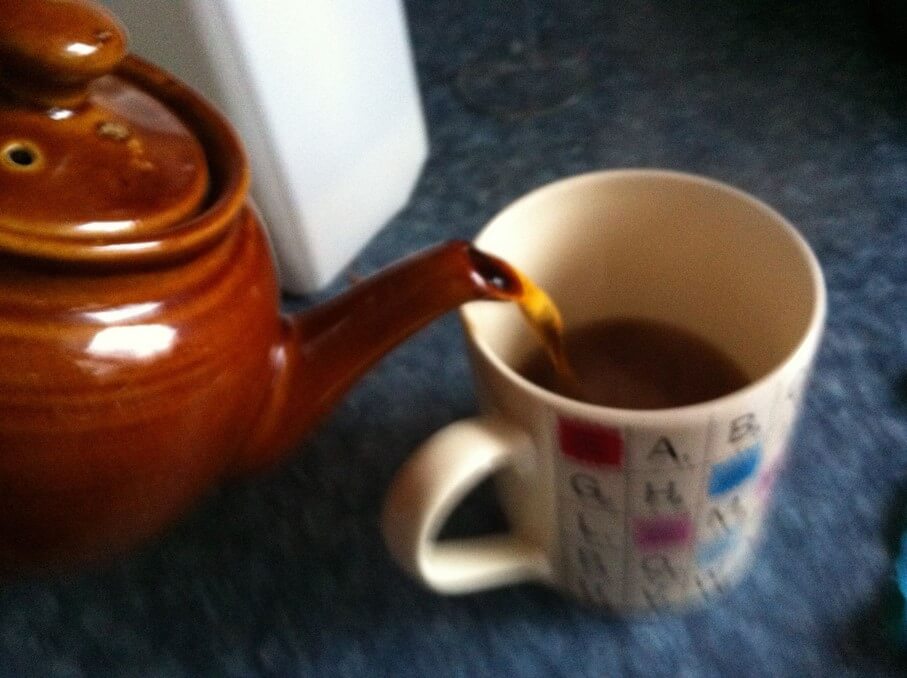 These days I’m thinking a lot about what it means to be “welcoming”.
These days I’m thinking a lot about what it means to be “welcoming”.
It’s a touchy subject. We all as humans want to be welcome, we all want to be part of the group, to be heard and loved and seen, and feel happy, whether in school, or work, or community. I know this feeling acutely: I was not welcome when I was a Junior High student. I know the sting of sitting on the outside of the other kids, of having people not value me for whatever reason they deemed right. I know how angry it made me feel, and how I saw those people as “snobs,” not knowing much about them beyond that. (If you’re curious, here is a video of a talk I gave last year called “Insider/Outsider” at a lecture series on compassion and cruelty.)
So the conversation about Cape Breton and whether or not it is welcoming, well, I think it strikes a deep, deep nerve. It’s touchy. I’m hesitant even to wade into it, since I hate conflict, but at the same time, it’s become obvious to me that it’s something we all need to be thinking about, because it affects the economic future of our home.
+++
I love my home. By this I first mean the actual house I live in, which keeps me warm and safe, where I share my love with my family and my partner, and where I love to have people over for tea and a visit.
I also love my home community. North Sydney isn’t where I grew up but it is where I live now, and it may have its downtrodden parts but I love it all: the old buildings on Commercial Street, the fields around the town, the Marine Atlantic terminal always busy. I love Baddeck, too, the village where I grew up, with its pretty, lakeside beauty, its cast of characters, it’s flux and flow of tourism and the winter season.
And I love the whole island, the woods, the fields, the sea, the towns, the history. (You may have guessed that love from the bumper stickers and postcards I make!)
Because I love my home, I’m so proud to share it with people, to welcome them to it. Come, see this place, make it your home too! Share your stories, and hear mine.
I think a lot of people feel that way, who live here. We love it, and we love to share it.
However, last month I was talking to someone who moved to Cape Breton a few years ago. They were feeling discouraged. They felt like they weren’t welcome in the rural area they had moved to, that their new business wasn’t being supported. They could see that some people welcomed them but overall they felt disappointed.
This isn’t the first time I’ve heard these feelings, from folks who move here from away.
Last year an International student at CBU said that he felt the community here could be more welcoming to the students from around the world who come to the university in Sydney. And in the One Nova Scotia, or “Ivany” Report, Nova Scotia is encouraged to diversify and welcome newcomers: “But too many [immigrants] who come to Nova Scotia do not stay because their professional or trade credentials are not recognized or they do not find our employers and communities very welcoming. It will take a concerted effort to overcome these obstacles.” (Page 70, italics mine.)
Yesterday I was on the Information Morning Issue Panel with Steve Sutherland and Amanda McDougall. You can hear the whole 16-minute discussion here. We talked about newcomers for part of the time. One of the things I brought up is how some communities are more welcoming than others, and some individuals within communities are more welcoming than others. So when we hear or say that ‘our communities are not very welcoming,’ the reality is that it’s not a blanket statement of ‘all Cape Bretoners are alike’ when it comes to being welcoming. Some people are already doing amazing things to be welcoming!
Anyway, the whole thing has got me thinking, that if we’re going to change this, and be more welcoming, we need to see the problem first, and talk about it, openly. What does ‘welcome’ look like, anyway? What is the expectation, and why are we falling short? Is there obvious discrimination, or is it a general feeling of “not being included”?
And, I don’t think it’s not going to be enough to say “Well, other people may be unwelcoming, but I’m not.” That’s finger-pointing, and it rarely leads to change. People don’t generally like to be told what they’re doing wrong. The only way to make lasting change is to change ourselves as individuals, and show by example.
Whew. That was a lot of talk about the word “welcome”. I’m ready for some tea. Would you like some?


This is a complex subject and I’m sure I will not be doing it justice in the few minutes I have to post now, but I did want to say that as a Come From Away (and even worse, an American!) who moved to a small Cape Breton community where I knew absolutely nobody, I have felt very welcome indeed. I honestly think that the local people — whether in Cape Breton or any other isolated, rural area where families (and in the case of Cape Breton, clans) have been for generations — simply don’t realize that the newcomers are being shut out in any sense. For example, trying to find services here was nearly impossible. But it isn’t because they don’t exist, or that people don’t want you to know who they are. I could be wrong but I think that it’s because a lot of services don’t advertise. For one thing, everybody KNOWS that Joe Schmidt from Sugarcamp (where’s Sugarcamp? Who’s Joe Schmidt?) is the one to go to for scrap lumber. It’s just a known thing; that family has done that for years. So they assume that EVERYBODY knows! For another thing, it’s habit — why would locals buy from a newcomer, when they have ALWAYS bought from Joe? And finally, a lot of people sell goods and services on the black market (“cash only, no receipt, unless you want to pay through the nose”), and for that group there’s no Better Business Bureau to say “this person is a ripoff, that person is not” so it’s all trial by error.So the saying “you have to know somebody” is very true, but there is no blame. I honestly think that most of the “unwelcoming” thing is unintentional. Personally, I don’t do the normal things that my neighbours do; I don’t go to church, bingo, ceilidhs, or most of those bonding group activities. I’m kind of an oddball loner — but my neighbours tolerate me, they have a strong “live and let live” approach, and I am very grateful for them.
I think Suzanne, the previous commenter, makes some very good points, and like her, I don’t belong to many groups. Having moved here two years ago from Ontario, I am used to describing myself as “from away”. Having lived for two decades before that in a rural location in southern Ontario where I had previously been a “summer resident”, I also became aware quickly of some tensions between the summer people and the year-round residents there. The first thing I learned about that distinction was that rural folk were tired of being expected by the summer people to “sanitize” farming life so that no curious cows would ever manage to stray, nor hold anyone up as the herd was walked down the road to a new field, and somehow manure was not supposed to be smelly when spread on the fields in spring. I’m sure you get the picture. There were many such issues.
What I learned to do there was to find ways to contribute to the community I lived in. I organised and coordinated a Community Watch program, as there had been a few break-ins in the area. I listened sympathetically to concerns expressed by my neighbours about all sorts of things. I’m a teacher, so I arranged with one of my neighbours to tutor her kids, who were struggling at school, in exchange for her doing my laundry, as I didn’t have running water in my cabin. It wasn’t hard to find many ways to learn from my neighbours and to share my skills with them. They also shared their skills with me, so I learned to hunt and got my hunting licence. I encouraged a couple of neighbours who loved to fish to use my boat, motor and gear on the pristine lake I lived on, and in exchange they built me a woodshed.
I’m old now, and haven’t as much to offer these days, but in small ways I can still be helpful to neighbours and friends occasionally and I do enjoy listening to others’ stories. Suzanne is correct that everyone who lives here knows where to buy stuff and where to get things fixed, etc. We have learned that if we just ask the people we know, they will happily share their expertise.
The thing is, few Cape Bretoners take it upon themselves to tell you what they know if you don’t ask. Nor do they seem to have rigid expectations about how one should dress, live, behave, etc. There is a very high degree of acceptance of people’s individual foibles here that one would not easily find in Ontario. Like Suzanne, Larry and I find that “live and let live” approach very refreshing.
Leah, thank you for treading in uncharted waters, especially given you (like me) wish to avoid the much dreaded C-word: conflict. 🙂 I find the comments by Suzanne and Hermit2003 heartening, as my desire is to call Cape Breton home. For some time, the very notions of a possibly closed, tight-knit rural community kept me at bay. As a younger female (30-something; ok, so perhaps ‘younger’ is a relative term ;), but I digress ..), I’d be stepping into CB not knowing a single soul.. yet, my intentions are to integrate with the community and ‘be’ the friendly neighbour that I wish reciprocated. I lived in rural Sask for a short while, and from that experience, realize that the locals readily embrace a good-spirited ‘newcomer’.. I trust that the road before me, once I step foot in CB, will be as welcoming as any..
It’s funny, I think growing up in Cape Breton prepared me for life in rural Ireland. Because I grew up in a close-knit community who tend to keep a lot to themselves, I didn’t expect anyone in my husband’s small (read: minute) village to bring out the welcome wagon when I moved. Don’t get me wrong; they have been lovely – friendly and good for a chat, but, like at home, why would these people come seeking me out when they already have a strong community circle to which they belong (have ALWAYS belonged)? I fully understood when I would see people peeking out at me from behind their curtains as I walked down the street, Someone mentioned the fact that we’re clannish, and I think that’s spot on. Suspicious of newcomers would also be accurate. But that doesn’t mean we aren’t welcoming; we just need to know every little detail about said newcomer. So we’re clannish and nosey, I guess.